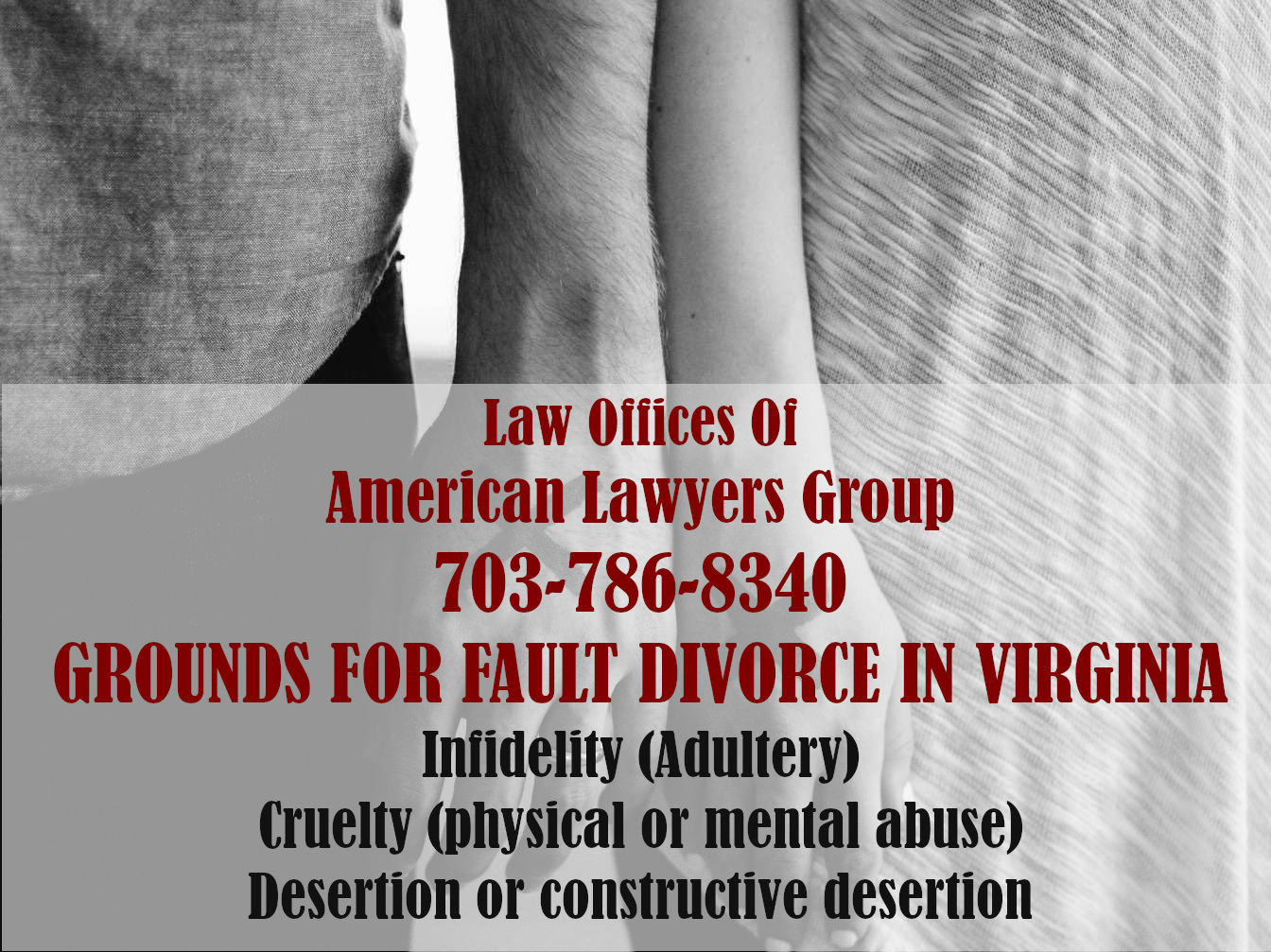DIVORCE ATTORNEY FAIRFAX VA
Let us defend your divorce legal rights in court. As a divorce attorney Fairfax VA I can fight for your equity distribution and other rights.
read below important information about Virginia divorce:
Experienced Low-Cost Divorce Attorney Fairfax Va

Call Now – FREE Consultation
Se Habla Espanol
What Are The Steps Required For a Fairfax County Divorce?
Divorce Attorney Files The Complaint About Divorce On Behalf of the Petitioner:
The first step in the Virginia divorce process is the preparation and filing of the Complaint about Divorce.
The plaintiff’s Complaint about Divorce outlines the list of demands, such as child custody, child support, spousal support, and equitable distribution.
There are two types of divorce that may occur, fault and no-fault. Understanding the difference between the two may help you win your case.
Virginia Divorce Law Requirements
| Divorce Requirement | Divorce Classification |
|---|---|
| Virginia Divorce Law Code Section | Virginia Law Section 20-91 |
| Virginia Residency Requirements For Divorce | Defender or plaintiff must be resident and domiciled six months before filing for divorce. Virginia Law Section 20-97 |
| Waiting Period Before Filing For Divorce | Decree immediate on the determination of issues. Remarriage is prohibited during the appeal. |
| ‘No Fault’ Grounds for Divorce | Must be Separated for 1 year. |
| Other Grounds for Divorce | Adultery, Criminal Conviction of Felonies, Abuse or Cruelty or One Year Separation |
What Are Grounds for Fault Divorce in Fairfax? Va Code Section 20-91
In order to file a fault divorce, you must have grounds. In Virginia, possible grounds for fault divorce may include:
-
-
- Adultery
- Physical, emotional, or mental abuse
- Substance abuse
- Desertion or abandonment
-
One of the most common reasons for a fault divorce in Fairfax is adultery. Adultery is when one of the partners is unfaithful to the other by engaging in extramarital sex.
Filing because of physical, emotional, or mental abuse may also be considered domestic violence. In these types of situations, the other spouse must prove that the violence was inflicted by their spouse to file a divorce on these grounds.
In relation to abuse, substance abuse or addiction may impact the marriage as well.
Desertion or abandonment is when the spouse leaves the residence of their partner with the intention of ending the marriage or acts in such a way as to drive the other out of the marital home.
The Virginia grounds for divorce are explained in Virginia Law Section 20-91.

What makes this different from no-fault divorce is that there is not a necessary amount of time that the two spouses need to live separately from each other.
The other benefit of filing based on a fault-based ground is that it provides the court an opportunity to consider the behavior of the parties when dividing the marital assets and setting a support award.
Because you are trying to prove to the court that someone has committed a fault within the marriage, a fault divorce may take longer to finish than a no-fault divorce.
When Can You File A No-Fault Divorce?
To file for a no-fault divorce in Virginia, you must do the following:
-
-
- Live separately for the statutorily required period of time
- Lived in the Commonwealth of Virginia for at least six months prior to filing
-
One of the most common reasons for a no-fault divorce is irreconcilable differences.

The Commonwealth of Virginia requires you and your spouse to live separately for at least a year if you have minor children, or at least six months if you do not have minor children, in order to get divorced.
When there are minor children involved, this may complicate the divorce so it is important to discuss these issues prior. At least one party must be a resident of the Commonwealth of Virginia.
There are a number of benefits to a no-fault divorce.
This type of divorce may be quicker than a fault divorce, saving you time and money on court fees and going to trial.
Also, when you file for a no-fault divorce and satisfy all the requirements, then the other spouse can not object to your filing.
What is A Separation Agreement?
For a married couple who wishes to divorce, but is able to reach an agreement on how to divide assets and parenting responsibilities, a Property Settlement Agreement can be a powerful tool.
This document resolves all the necessary issues, such as child custody, support, and equitable distribution, without the need or expense of going to trial.
This is a mutually accepted document by both parties and usually includes advice by the party’s lawyers when drafting the agreement.
Having a knowledgeable divorce attorney may relieve much of the stress you would experience if you had to take on this challenge alone.
An advantage of a separation agreement is that this allows for a no-fault divorce to be filed after only six months of separation when you do not have a minor child.
If you do have a minor child, you must be separated for a year with or without a separation agreement.
Experienced Low-Cost Divorce Attorney Fairfax Va

Call Now – FREE Consultation
Se Habla Espanol
Before you sign any separation agreement, it is important to seek advice from an experienced divorce attorney Fairfax VA, so you are getting a fair share of your assets and/or time with your children.
What Are The Steps Required For a Fairfax County Divorce?
The first step in a Virginia Divorce Process is the preparation and filing of the complaint about divorce.
The plaintiff’s Complaint about Divorce outlines the list of demands, such as child custody, child support, spousal support, and equitable distribution.
What Qualifies As Living Separate And Apart in Fairfax?
A huge misconception about the requirement for spouses to live separate and part is that you must live under separate roofs for a year.
Since this is impractical for most couples to be able to find and afford a place the most they decide to separate from their current spouse, Virginia law allows you to live under the same roof.
Virginia only requires you to have an intent to separate by not being involved financially, sexually, or emotionally for the six to twelve-month period.
In order to confirm this separation, the court will usually ask for someone to testify to this separation. The court may ask friends or family of the couple to testify under oath of the couple’s separation.
Ideally, living separate and apart under the same roof means that the couples stay in different rooms and are independent of each other.
How Do You File For Divorce in Fairfax?
The following are steps for filing for a contested or fault divorce in Fairfax.
- File a complaint- Filing a complaint in your local court will start your divorce process.
- You must decide what grounds you are filing for your divorce since this will determine if you will have a fault or no-fault divorce. After you file, the court will serve your complaint to your spouse.
- Once your spouse receives your complaint, they will have 21 days to either confirm or deny the allegations in the complaint.
- Regardless if they confirm or deny your allegations, they have the opportunity to file a counterclaim against you at this time.
- Pendente Lite Relief: Pendente lite literally means “lawsuit pending”.
- A court may issue a pendente lite order to issue a temporary set of requirements for either spouse. A pendente lite order may compel a spouse to provide alimony, child support, jointly paying incurred debts, and more. It is important to be aware of the terms of this order by reviewing it with your divorce attorney Fairfax VA, prior to signing any order.
- Pretrial motions such as continuances, motions to compel discovery, and motions for pendente lite relief may be filed.
- This is the pretrial work that you typically work with your divorce attorney Fairfax VA, in order to create a defense for your case.
- Either spouse may file any of these pretrial motions to each other.
- If needed, experts are asked to testify on behalf of one of the spouses.
Experienced Low-Cost Divorce Attorney Fairfax Va

Call Now – FREE Consultation
Se Habla Espanol
- Experts may be used when determining alimony, child support, and child custody by testifying to a spouse’s physical/mental inability to work, their earning capabilities, and the specific needs of the children.
- Discovery is collected in order to gather evidence in preparation for your trial.
- There are four different types of commonly used discovery: interrogatories, depositions, subpoenas, and requests for the production of documents. An interrogatory question given to a party to be answered prior to trial Depositions are oral testimonies provided under oath and in the presence of a court reporter.
- Subpoenas are requests sent to third-party individuals to testify during the trial or to provide documents.
- Requests for the production of documents are requests that a party turns over relevant documents prior to trial.
- These may include, emails, phone records, or bank statements.
- Parties who fail to adequately respond to discovery requests may be compelled to do so by the court.
- The trial will include the discovery collected prior to trial in order to create a defense for each side on the debated issues.
- Witnesses may also be used in order to testify on behalf of either party.
- At the end of the trial, the judge will deliver a ruling on your divorce. Depending on the circumstances of your case, there is not a guaranteed time frame when you will receive this ruling. The time period may vary from a few weeks to a few months from the end of your trial.
What To Do After A Judge Rules On Your Divorce in Fairfax?
After the judge delivers their opinion on your case, then you must comply with the decisions of this order. It is illegal to not comply with a court order and this can result in serious penalties.
Despite what the pendente lite order said, the final order is what you should follow. If you feel that the judge incorrectly ruled in your divorce, then you may file for an appeal.
You must file for an appeal within thirty days of the final judgment in order to be considered.
Make sure to consult your divorce lawyer in Fairfax prior to making decisions about filing for an appeal to know the likelihood of your appeal.

